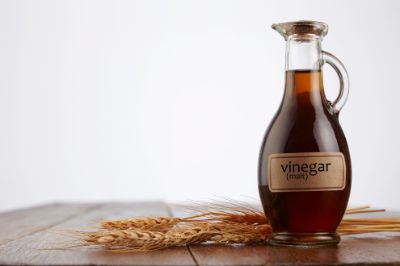Vinegar is a versatile ingredient used in many cuisines around the world. While it's readily available in stores, making your own vinegar at home can be a fun and rewarding experience. One of the traditional methods of vinegar making is using wooden barrels, which can impart unique flavors and aromas to the finished product.
To make vinegar in barrels, you'll need to start with a vinegar mother, which is a gelatinous substance made up of acetic acid bacteria. This can be obtained from a bottle of unpasteurized vinegar or from a specialty store that sells vinegar-making supplies.
Next, you'll need to select a suitable barrel for vinegar making. The ideal barrel is made from oak or another hardwood, as these woods are porous and allow for oxygen exchange, which is important for vinegar fermentation. The barrel should also be free from any contaminants or residual flavors, which can affect the taste of the vinegar.
Before using the barrel, it's important to properly sanitize it. This can be done by rinsing the barrel with hot water and then using a mixture of water and a food-grade sanitizer, such as potassium metabisulfite or Star San. After sanitizing the barrel, rinse it thoroughly with water and allow it to dry.
Once the barrel is ready, you can pour in a mixture of vinegar mother and diluted wine or other alcohol. The acetic acid bacteria in the vinegar mother will convert the alcohol into acetic acid, which is what gives vinegar its sour taste.
Over time, the vinegar will mature and develop a more complex flavor profile. The length of time needed to make vinegar in barrels can vary depending on a number of factors, such as the type of barrel, the temperature, and the desired flavor profile. Some vinegar makers age their vinegar for just a few weeks, while others may age it for several months or even years.
As the vinegar ages, it's important to regularly taste it to ensure that it doesn't become over-acidic or develop any off-flavors. You can also experiment with different types of alcohol and vinegars to create your own unique blends and flavors.
Overall, making vinegar in barrels is a time-honored tradition that can add depth and complexity to this already versatile ingredient. With a little patience and experimentation, you can create your own signature vinegars that are sure to impress.


